
- Edward Baptist's, "The half has never been told" AND classroom applications HERE.
- Elliot West's, "Contested Plains"
 Just two quick links to book reviews:
0 Comments
Smoke Signals is something of a ground breaking film in the category of Westerns, in that it has been written, directed, produced by and starred in by American Indians. The film itself is adaptation of a short story collection by Sherman Alexie "The Lone Ranger and Tonto Fistfight in Heaven". Director Chris Eyre turns this into a fantastic, funny and intimate film which won both the Audience Award and the Filmmakers' Trophy at the Sundance Film Festival 1998. Smoke Signals tells the story of two very different young men, brought up in a small town on the "Rez". When Victor is called away urgently to Phoenix, the two young men are thrown together when Thomas offers to pay for his trip. The remainder of the film looks at how the characters deal with themselves, each other and their shared histories as both struggle to come to terms with their relationship with Victor's drunken father. The road movie theme is really something of an aside. What makes this a brilliant and darkly funny movie, is that it offers an honest insight into the lives of Indians on the Reservations in the late 1990s, without resorting to the kind of exploitation so common in white-directed films of the period. Indeed, Dances with Wolves is lampooned in a conversation where Victor tires to teach Thomas how to be a real Indian. As film critic Roger Ebert notes in his own analysis of the film "There's a particular satisfaction in listening to people talk about what they know well and care about. The subject isn't as important as the feeling. Listen to them discuss the ins and outs of an Indian specialty known as "frybread,'' and you will sense what they know about the world." At the very least, this might be something of an antidote to Johnny' Depp in the Lone Ranger. Indeed at one point in the film, a woman remarks to the odd duo "Hey, you two were just like the Lone Ranger and Tonto." "No" replies Thomas, "We are more like Tonto and Tonto." Try it - you might just love it Mr F 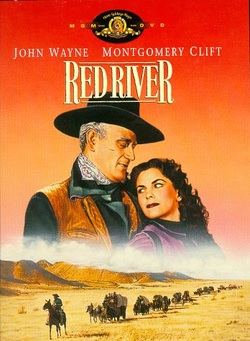 The Guardian has compiled a list of the 10 best Westerns of all time. It is well worth a look. Even if you can only watch one or two of these, it will help you access the idea of the myth of the West which is so central to the USA's understanding of itself. Can I highly recommend Stagecoach (no. 10) as a brilliant Western, I am not too sure about the Man from Laramie however... Highly disappointingly, George Steven's Shane (1953) has not made the list. This is by far and away the best Western I have seen. If you have not seen Shane, what are you waiting for - go get a slice of American history! The full list is HERE. Comment if you have any other good recommendations. Aaron Huey relates the fight for survival on the Pine Ridge Indian Reservation. Aaron began photographing on Pine Ridge Reservation as part of a story on poverty in America, but it has captured his passion for five years. A quintessential example of the failures of the reservation system, he and we cannot turn away from what we see at Pine Ridge. 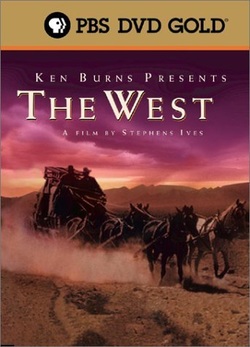 A fantastic series by Ken Burns and Steven Ives which explores the West through the writings of New Western Historians such as Patty Limerick and Richard White. If you have the time this is a brilliant watch from start to finish!! If not, I have put a guide on so you can pick specific parts which might be useful. There is an accompanying website which you will find HERE too. Click READ MORE to see the videos
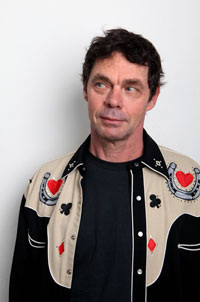 Absolutely fantastic programme but bear in mind there is a PARENTAL ADVISORY with this one. Some of the language is a bit strong but Rich raises some excellent points. Click the break if you are over 16 and want to view. Comedian Rich Hall goes in search of the real American Indian, a people who have too often been stereotyped. This image portrayed through cinema and literature is not a true representation of the Native American, giving Rich the opportunity to redress the balance. With the help of Native American, Dallas Goldtooth, Rich explores a different idea of what the American Indian is and what life is like for them today. He not only questions the screen image of the 'savage Indian' in films such as Soldier Blue, Stagecoach and A Man Called Horse, but looks at the written one, through literature such as The Last of the Mohicans, Black Elk Speaks and Bury My Heart at Wounded Knee. The humanizing of War! You might as well talk of the humanizing of Hell...As if war could be civilized! If I'm in command when war breaks out I shall issue my order—"The essence of war is violence. Moderation in war is imbecility. Hit first, hit hard, and hit everywhere!" —Sir Reginald Bacon, The Life of Lord Fisher of Kilverstone, Admiral of the Fleet 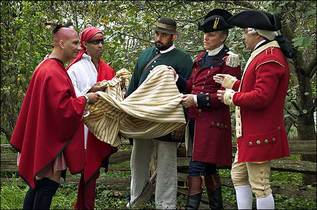 After the British removed the French from their colonial claim in North America, British policy in Ohio changed sharply. Sir Jeffrey Amherst commander of the British forces, declared that British should no longer give gifts to Indian chiefs. Many Ohio Indians were dependent on British trade and so starvation set in. Ohio Indians began following Neolin, a prophet who believed Europeans were a plague to be removed. In 1763 Indians including Pontiac – an Ottowa chief – attacked British forts and killed 2000 settlers. This became known as Pontiac’s Rebellion. In response, Amherst suggested the British “send the Small Pox amongst these disaffected tribes of Indians”. ordered infected blankets to be sent into camps. Hundreds were killed as disease spread amongst the tribes. The Indians were forced to sue for peace. So was the British use of primative germ-warfare effectively a war crime? Or would it be justified, as Machiavelli argued: "When it is absolutely a question of the safety of one's country, there must be no consideration of just or unjust, of merciful or cruel, of praiseworthy or disgraceful; instead, setting aside every scruple, one must follow to the utmost any plan that will save her life and keep her liberty." What do you think? Full article here... http://www.history.org/foundation/journal/spring04/warfare.cfm
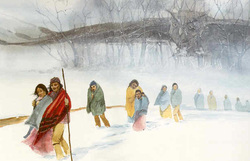 David Keys outlines his version of a continuing story of conquest in the West.
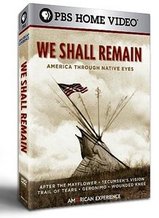 A decent PBS series on the History of the Native Americans which will stream over the net. The programme on Wounded Knee is very interesting indeed - ties in with the wider Civil Rights movement. LINK An article looking at the controversial relationship between Native Americans and the Federal Government of the USA. http://www.historytoday.com/andrew-boxer/native-americans-and-federal-government Mr F
|
Teaching Resources
Archives
April 2023
Categories
All
|
||||||||||||||||||||||||
